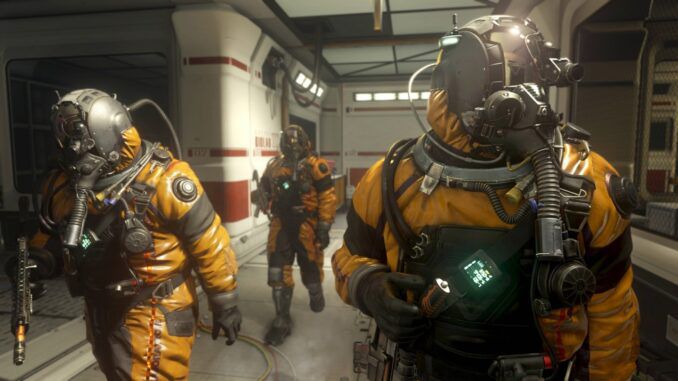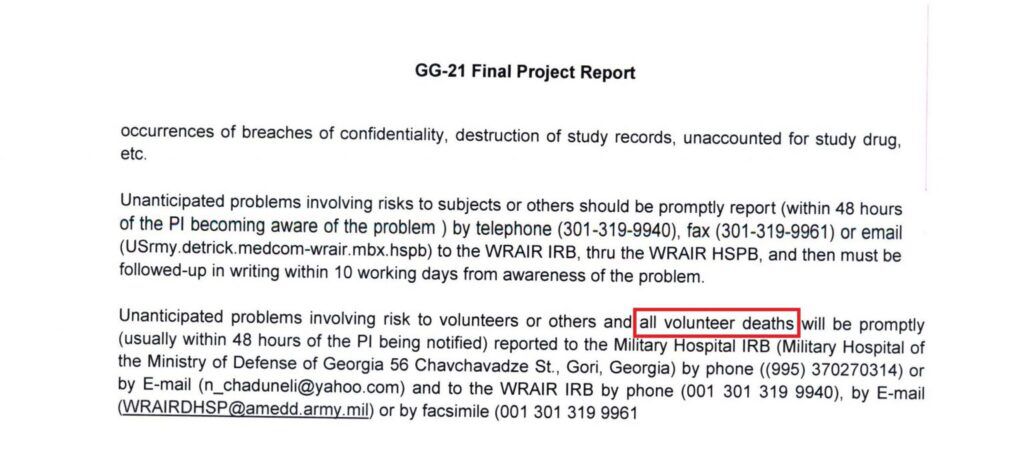
Leaked internal documents have surfaced proving the Pentagon has been running top-secret biolabs in Ukraine and performing biological experiments on Ukrainian soldiers, will full legal indemnity against deaths and injuries.
As the mainstream media and fact checkers continue claiming Pentagon biolabs in Ukraine do not exist, yet more evidence continues to surface proving them wrong.

BYPASS THE CENSORS
Sign up to get unfiltered news delivered straight to your inbox.
You can unsubscribe any time. By subscribing you agree to our Terms of Use
While the US is planning to increase its military presence in Eastern Europe to “protect its allies against Russia”, internal documents show what Anthony Fauci-sponsored “protection” and Pentagon “defense” means in practical terms.
The Pentagon has conducted biological experiments with a potentially lethal outcome on 4,400 soldiers in Ukraine and 1,000 soldiers in Georgia. According to the leaked documents, all “volunteer deaths” should be reported within 24 hours (in Ukraine) and 48 hours (in Georgia).
Both countries are considered the most loyal US partners in the region with a number of Pentagon programs being implemented in their territory.
One of these programs is the $2.5 billion Defense Threat Reduction Agency (DTRA) Biological engagement program which includes research on bio agents, deadly viruses and antibiotic-resistant bacteria being studied on the local population.
Project GG-21: “All volunteer deaths will be promptly reported”
Per Dilyana Gaytandzhieva: The Pentagon has launched a 5-year long project with a possible extension of up to 3 years code-named GG-21: “Arthropod-borne and zoonotic infections among military personnel in Georgia”.
According to the project’s description, blood samples will be obtained from 1,000 military recruits at the time of their military registration physical exam at the Georgian military hospital located in Gori.
The samples will be tested for antibodies against fourteen pathogens:
- Bacillus anthracis
- Brucella
- CCHF virus
- Coxiella burnetii
- Francisella tularensis
- Hantavirus
- Rickettsia species
- TBE virus
- Bartonella species
- Borrelia species
- Ehlrichia species
- Leptospira species
- Salmonella typhi
- WNV
The amount of blood draw will be 10 ml. Samples will be stored indefinitely at the NCDC (Lugar Center) or USAMRU-G and aliquots might be sent to WRAIR headquarters in US for future research studies. Walter Reed Army Institute of Research (WRAIR) is the largest biomedical research facility administered by the U.S. Department of Defense. The results of the blood testing will not be provided to the study participants.
Such a procedure cannot cause death. However, according to the project report, “all volunteer deaths will be promptly reported (usually within 48 h of the PI being notified)” to the Georgian Military Hospital and WRAIR.



The soldiers’ blood samples will be stored and further tested at the Lugar Center, a $180 million Pentagon-funded facility in Georgia’s capital Tbilisi.
The Lugar Center has become notorious in the last years for controversial activities, laboratory incidents and scandals surrounding the US drug giant Gilead’s Hepatitis C program in Georgia which has resulted in at least 248 deaths of patients. The cause of death in the majority of cases has been listed as unknown, internal documents have shown.
The Georgian project GG-21 has been funded by DTRA and implemented by American military scientists from a special US Army unit code-named USAMRU-G who operate in the Lugar Center. They have been given diplomatic immunity in Georgia to research bacteria, viruses and toxins without being diplomats. This unit is subordinate to the Walter Reed Army Institute of Research (WRAIR).


Documents obtained from the US Federal contracts registry show that USAMRU-G is expanding its activities to other US allies in the region and is “establishing expeditionary capabilities” in Georgia, Ukraine, Bulgaria, Romania, Poland, Latvia and any future locations. The next USAMRU-G project involving biological tests on soldiers is due to start in March of this year at the Bulgarian Military Hospital in Sofia.
Project UP-8: All deaths of study participants should be reported within 24 h
The Defense Threat Reduction Agency (DTRA) has funded a similar project involving soldiers in Ukraine code-named UP-8: The spread of Crimean-Congo hemorrhagic fever (CCHF) virus and hantaviruses in Ukraine and the potential need for differential diagnosis in patients with suspected leptospirosis. The project started in 2017 and was extended few times until 2020, internal documents show.
According to the project’s description, blood samples will be collected from 4,400 healthy soldiers in Lviv, Kharkov, Odesa and Kyiv. 4,000 of these samples will be tested for antibodies against hantaviruses, and 400 of them – for the presence of antibodies against Crimean-Congo hemorrhagic fever (CCHF) virus. The results of the blood testing will not be provided to the study participants.
There is no information as to what other procedures will be performed except that “serious incidents, including deaths should be reported within 24 hours. All deaths of study subjects that are suspected or known to be related to the research procedures should be brought to the attention of the bioethics committees in the USA and Ukraine.”
DTRA has allocated $80 million for biological research in Ukraine as of 30 July 2020, according to information obtained from the US Federal contracts registry. Tasked with the program is the US company Black &Veatch Special Projects Corp.
Another DTRA contractor operating in Ukraine is CH2M Hill. The American company has been awarded a $22.8 million contract (2020-2023) for the reconstruction and equipment of two biolaboratories: the State Scientific Research Institute of Laboratory Diagnostics and Veterinary-Sanitary Expertise (Kyiv ILD) and the State Service of Ukraine for Food Safety and Consumer Protection Regional Diagnostic Laboratory (Odesa RDL).
US personnel are indemnified for deaths and injuries to the local population
The DTRA activities in Georgia and Ukraine fall under the protection of special bilateral agreements. According to these agreements, Georgia and Ukraine shall hold harmless, bring no legal proceedings and indemnify the United States and its personnel, contractors and contractors’ personnel, for damage to property, or death or injury to any persons in Georgia and Ukraine, arising out of activities under this Agreement. If DTRA-sponsored scientists cause deaths or injuries to the local population they cannot be held to account.
Furthermore, according to the US-Ukraine Agreement, claims by third parties for deaths and injuries in Ukraine, arising out of the acts or omissions of any employees of the United States related to work under this Agreement, shall be the responsibility of Ukraine.
Baxter Dmitry
Email: [email protected]
Latest posts by Baxter Dmitry (see all)
Related posts:
Views: 0
 RSS Feed
RSS Feed

















 March 1st, 2022
March 1st, 2022  Awake Goy
Awake Goy 

 Posted in
Posted in  Tags:
Tags: 
















